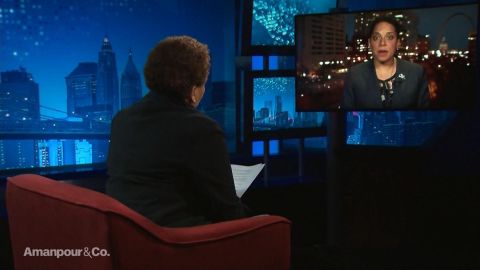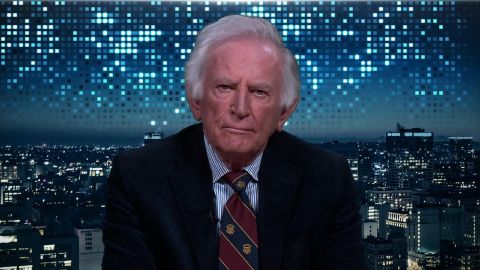Read Transcript EXPAND
AMANPOUR:
We heard a doctor in a full surgical mask basically saying, we have not yet reached the peak of this thing, of this epidemic from hard. What do you think it might look like given the numbers now? Is it in your medical opinion like SARS or Zika or Ebola or those other things?
SANJAY GUPTA:
Well, this, this appears to be, uh, more, more contagious, more transmissible than SARS just by looking at the numbers. But you know, Christianne they’re there. That’s obviously bad news, but think of it in the full context. Okay. So, uh, first of all, there’s much more awareness of this virus now and there’s more testing. So by virtue of those two things, not surprised that the numbers have been going up as significantly as they have, but also there may be many people Christianne who either have no symptoms or very mild symptoms who may not be getting tested at all. So then that increases the overall denominator. If you, in this ratio, if the number of people who have died or become quite ill doesn’t rise at that same level, that means the, the mortality ratio, they fatality ratio could actually start to drop. And that’s a good thing. I, I hope that makes sense. But you know, a lot of people, if they have mild symptoms, may not be getting tested at all. And that will mean that the, the overall, uh, seriousness of this for most people may not be there.
AMANPOUR:
Yes. And, and that’s what people are worried about in the beginning. That they could be symptomatic without showing the symptoms. Let me turn to James Miles. China editor for the economist. Um, has the Chinese communist party government presidents using pain, have they done everything that they should be doing to, to, to tell the world what’s happening, to share information, to do what they need to do in the infected parts? Well now it’s, Oh, it’s spread everywhere there.
JAMES MILES:
Well, that would seem to be the case now, right from the beginning, uh, international experts were praising China for the way that it had been, uh, open in terms of sharing what it knew about the virus, uh, itself with the rest of the world. And that contrast with the way that it handled the SARS epidemic in 2003 when it waited a very long time before giving these kinds of details to the world health organization and other experts. But a lot of questions are being asked in China about whether the authorities have taken far too long to inform the public about the potential dangers of this virus spreading their own public, their own rights. Uh, and, uh, particularly on the ground in all hand where the epidemic appears to have broken out. Uh, they knew, uh, that, uh, this virus had been identified, they’d reported it up to the central authorities in December, but subsequently failed to, uh, inform people in all Han that this was happening. And, uh, to take precautions and it took quite a long time. But for that to happen.
About This Episode EXPAND
Former U.S. Democratic presidential candidate Gary Hart joins Christiane Amanpour to discuss the importance of Monday’s Iowa caucuses. CNN’s Dr. Sanjay Gupta and The Economist’s James Miles break down the realities of the coronavirus and the Chinese government’s response. St. Louis Chief Prosecutor Kim Gardner tells Michel Martin why she is filing a lawsuit against her city and its police union.
LEARN MORE


